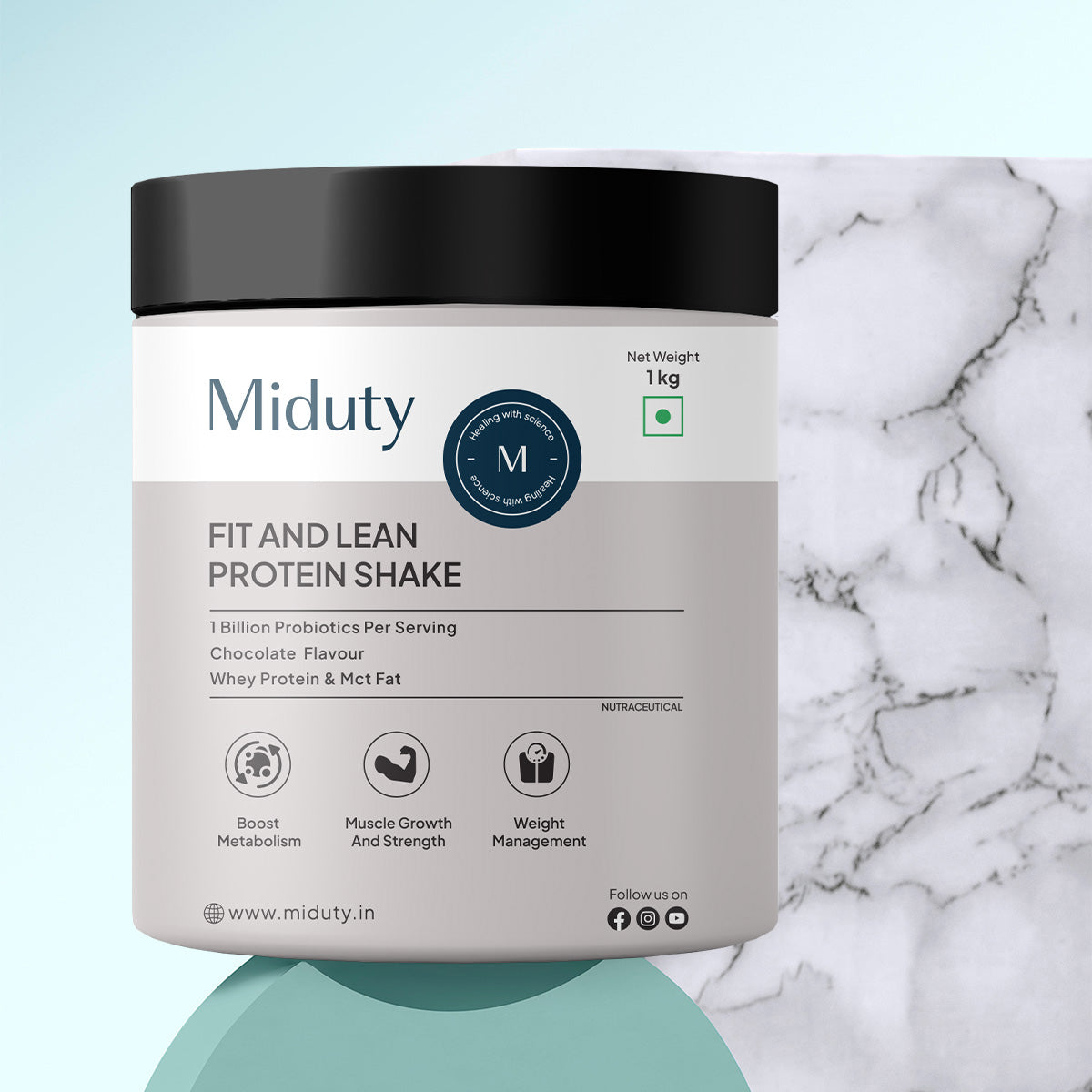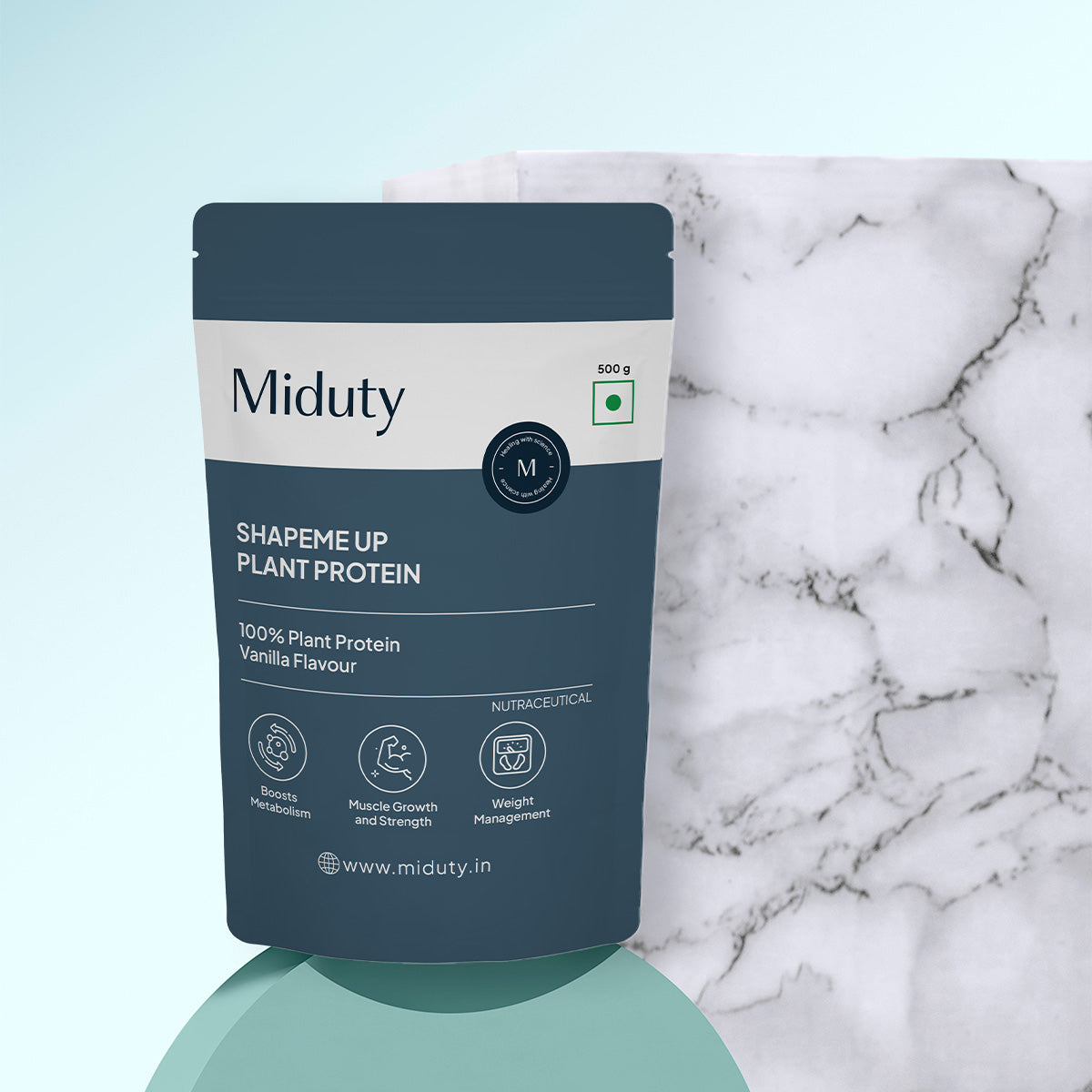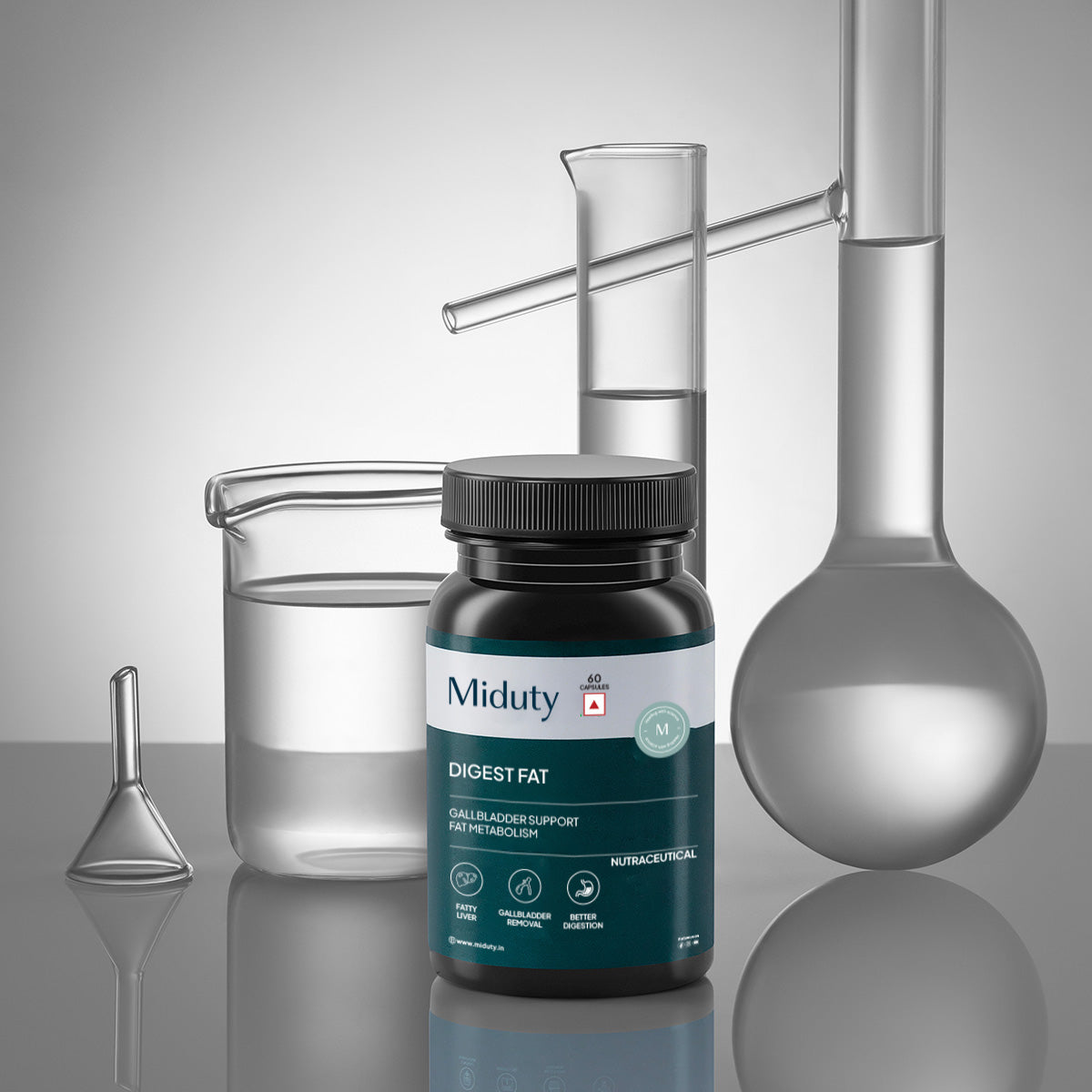
Protein Powders for Sensitive Stomachs: The Key To Healthy Gut and Digestion
You mix up your protein shake after a workout — a creamy swirl of goodness that's supposed to fuel your muscles and speed up recovery. But within minutes, your stomach starts to feel uneasy. Maybe it's bloating, a bit of cramping, or that uncomfortable heaviness that lingers long after you finish drinking.
If that sounds familiar, you're not alone. Many people who turn to protein powders for fitness, weight management, or nutrition support find themselves battling digestive discomfort instead. What's supposed to be healthy fuel can sometimes feel more like a gut challenge.
So, why does this happen? And more importantly, are there protein powders that don't upset your stomach? The good news: yes. Let's dive into the science of gentle digestion and find out what makes certain protein powders kinder to sensitive stomachs.
Key Takeaways
1. Digestive discomfort from protein powders is common and fixable. Many people experience bloating, gas, or cramps after consuming protein shakes due to lactose intolerance, artificial additives, or hard-to-digest plant proteins. Understanding your body's sensitivities is the first step toward relief.
2. Not all protein powders are created equal. Whey concentrate tends to cause the most stomach issues, while gentler options like whey isolate, hydrolyzed whey, pea protein, rice protein, egg white, and collagen protein are easier to digest and less likely to cause discomfort.
3. The science of "gentle digestion" comes down to three factors — digestibility, purity, and enzyme support. Proteins that are easy to break down, free of unnecessary additives, and enriched with digestive enzymes help minimize strain on the gut.
4. Small changes in how you use protein powders can make a big difference. Mixing powders with lactose-free milk, avoiding artificial sweeteners, adding gut-soothing ingredients like ginger or banana, and starting with smaller portions can all improve tolerance.
5. Persistent stomach issues may signal an underlying digestive condition. If discomfort continues even with gentle or lactose-free powders, it could indicate IBS, food intolerances, or enzyme deficiencies — and consulting a healthcare professional is the best next step.
Why Protein Powders Can Upset Your Stomach?
To understand what makes some protein powders easier to digest, it helps to know why others cause trouble. Here are some of the most common culprits:
1. Lactose Intolerance
Many popular protein powders, especially whey concentrate, contain lactose — a natural sugar found in milk. If your body doesn't produce enough lactase (the enzyme needed to break down lactose), it can lead to gas, bloating, or diarrhea.
2. Additives and Artificial Ingredients
Protein powders often include artificial sweeteners, gums, thickeners, and flavor enhancers to improve taste and texture. For sensitive individuals, ingredients like sucralose, acesulfame potassium, or xanthan gum can trigger bloating or discomfort.
3. High Fiber or Complex Plant Proteins
Plant-based protein powders made from peas, lentils, or beans can be harder to digest for some people because they contain fiber and natural compounds like oligosaccharides, which can ferment in the gut and cause gas.
4. Large Serving Sizes
Sometimes the issue isn't the powder — it's the amount. Taking two or three scoops in one sitting can overwhelm your digestive system, especially if your body isn't used to processing concentrated protein.
5. Pre-existing Gut Sensitivities
People with IBS (Irritable Bowel Syndrome), acid reflux, or other digestive conditions are naturally more sensitive to certain food components. Even small irritants can lead to discomfort.
The key is to match your body's digestive capacity with the right type of protein and formulation — one that fuels your goals without upsetting your stomach.
Understanding the Science of Gentle Digestion
Before choosing the right protein powder, let's first understand how your body digests protein.
When you consume protein (from food or supplements), your digestive enzymes break it down into amino acids, the building blocks your body uses for muscle repair, hormone production, and immune function.
However, if digestion is incomplete — whether due to enzyme deficiencies, intolerance, or complex ingredients — proteins and other compounds can ferment in the gut, leading to gas, bloating, and discomfort. So, the "science" behind gentle digestion is about three main factors:
- Digestibility – how easily your body can break down and absorb the protein.
- Purity – fewer additives and fillers mean fewer irritants for your stomach.
- Enzyme Support – the presence of digestive enzymes can help improve absorption and reduce strain on your gut.
The Best Protein Powders for Sensitive Stomachs
If you've struggled with digestion issues but don't want to give up on protein supplements, here are some of the best options backed by nutritional science:
1. Whey Protein Isolate (Not Concentrate)
If you're okay with dairy but lactose intolerant, whey isolate is your best friend. It's highly filtered and contains less than 1% lactose, making it much easier on the stomach than whey concentrate. [1]
- Why it works: High purity, fast absorption, and minimal fat or sugar.
- Tip: Look for brands that specifically mention "lactose-free" or "cold-processed isolate."
2. Hydrolyzed Whey Protein
Hydrolyzed whey is pre-digested — meaning enzymes have already broken down the protein into smaller peptides. [2]
- Why it works: Faster absorption and less work for your digestive system.
- Note: It's more expensive but often worth it if you have a sensitive gut.
3. Pea Protein Isolate
For vegans or those avoiding dairy, pea protein isolate is one of the most digestible plant-based options. It's hypoallergenic, gluten-free, and gentle on most stomachs.
- Why it works: Low in fiber and anti-nutrients, but rich in amino acids.
- Tip: Choose unflavored or naturally sweetened varieties to avoid artificial additives.
4. Rice Protein
Rice protein is another plant-based alternative that's light and typically well-tolerated.
- Why it works: Naturally gluten-free and easy to digest, especially for people with multiple food sensitivities.
- Tip: Combining rice and pea protein gives a more balanced amino acid profile.
5. Egg White Protein
Egg whites are one of the most bioavailable protein sources — meaning your body can use nearly all of it efficiently.
- Why it works: No lactose, no gluten, and minimal fat.
- Tip: Ideal for those who can't tolerate dairy but are not vegan.
6. Collagen Protein
Collagen isn't a complete protein (it lacks some essential amino acids), but it's excellent for gut health and easy digestion.
- Why it works: Supports gut lining repair, skin elasticity, and joint health.
- Tip: Combine with another protein source if you're using it post-workout.
Additional Tips for Gentle Digestion
Even the best protein powder can cause discomfort if used incorrectly. Here are some simple ways to make your shakes easier on your stomach:
1. Start Small
If you're new to protein powders, start with half a scoop and gradually increase as your body adjusts.
2. Mix With Water or Lactose-Free Milk
Dairy milk can worsen bloating if you're lactose intolerant. Instead, try mixing your powder with water, almond milk, oat milk, or coconut milk.
3. Avoid Artificial Sweeteners
Artificial sweeteners like sucralose, aspartame, or sugar alcohols can irritate your gut. Look for powders sweetened with stevia, monk fruit, or coconut sugar.
4. Add Digestive Enzymes
Some high-quality protein powders come with added enzymes like protease, lactase, or papain, which help break down protein and lactose. If not, you can take enzyme supplements separately.
5. Blend With Gut-Soothing Ingredients
Add natural gut-friendly ingredients like ginger, banana, papaya, or yogurt to your shake. They can help calm the digestive tract and improve nutrient absorption.
6. Watch Your Timing
Sometimes discomfort comes from consuming a shake too quickly or too close to a meal. Allow at least 30–45 minutes between large meals and protein shakes.
When to See a Doctor?
If you consistently experience bloating, cramps, or diarrhea after consuming protein powders — even gentle or lactose-free types — it may indicate a deeper issue such as IBS, small intestinal bacterial overgrowth (SIBO), or food intolerances.
It's important to consult a healthcare professional or dietitian, who can help identify the root cause and suggest a customized nutrition plan.
Final Thoughts
Protein powders are meant to support your health — not disrupt it. The key to comfortable digestion is choosing the right formulation for your body's needs.
If your current shake leaves you feeling heavy or bloated, switch to whey isolate, hydrolyzed whey, or plant-based isolates like pea or rice protein. Pair that with clean ingredients, proper portion sizes, and mindful consumption, and you'll find that protein powders can be both nourishing and gentle.
Your stomach deserves the same care as your muscles. With a bit of understanding and smart choices, you can enjoy every scoop — minus the discomfort.
FAQ's on Protein Powders for Sensitive Stomachs -
Q1 - Which protein powder is best for a sensitive stomach?
For kids with sensitive stomachs, whey protein isolate or plant-based options like pea or hemp protein are ideal, as they're low in lactose and easier to digest. Hydrolyzed whey protein can also be gentle on digestion, while those with conditions like IBS may do best with low-FODMAP certified products.
Q2 - How to make protein powder not hurt your stomach?
To ease a protein shake–related stomach ache, try switching to a whey isolate or plant-based protein to lower lactose content, and avoid sugar alcohols or gums that can cause bloating. Drink your shake slowly, wait about 30 minutes after workouts before consuming, stick to the recommended serving size, and maintain enough fiber in your diet to support digestion.
Q3 - Why do protein powders bother my stomach?
Protein powders can cause stomach issues due to lactose intolerance (in dairy-based powders), artificial sweeteners and additives, and consuming too much protein at once. Lactose, found in whey protein, can cause bloating, gas, and diarrhea if you lack the lactase enzyme. Additionally, artificial sweeteners like sugar alcohols can lead to gas and discomfort because the body has difficulty digesting them. Overwhelming your system with a large amount of protein too quickly can also slow digestion and cause discomfort.
Q4 - Is protein powder bad for gut health?
Protein powder isn't necessarily bad for gut health, but certain types or excessive use can lead to bloating, gas, or constipation—often due to lactose intolerance, artificial additives, or low fiber content. Overuse and poor-quality ingredients may also disrupt the gut microbiome. To support digestion, choose high-quality powders, start with small amounts, and maintain a fiber-rich diet.
Q5 - Can protein powder trigger IBS?
Yes, protein powders can aggravate IBS symptoms, especially those containing whey (lactose), artificial sweeteners, sugar alcohols, or other high-FODMAP ingredients. To minimize flare-ups, choose low-FODMAP options such as pea or brown rice protein, and always check labels for hidden additives and allergens.
References













